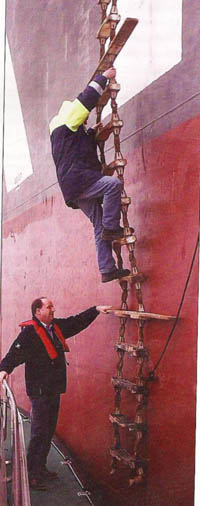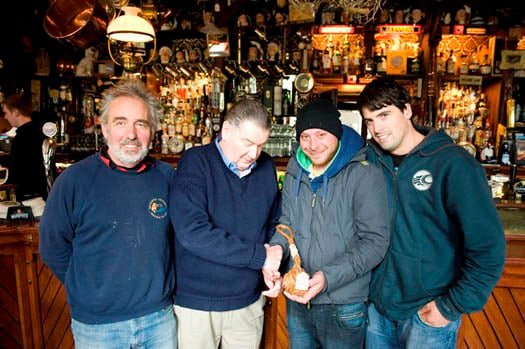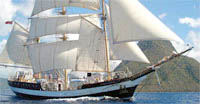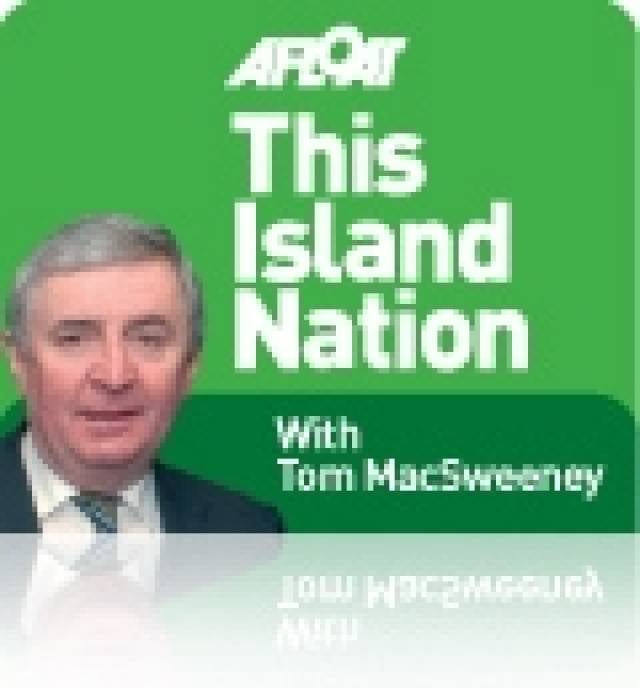#THIS ISLAND NATION – The best news for maritime Ireland this week, in my view, was the abandoning of a proposal which could have wiped out the Irish family tradition in fishing.
European bureaucrats have made a shambles of the fishing industry with convoluted regulations and proposals. Fishermen were not properly consulted and the result has been the present mess of the Common Fisheries Policy. There are reasons to believe that EU fisheries officials would prefer a single, centrally-registered and controlled European fishing industry. Introducing ITQs - tradeable fishing quotas - would have facilitated this, allowing big fishing companies to buy up quotas and force smaller, family operators out of business.
Denmark has first-hand experience of this happening. It introduced the system in 2003 and today, according to figures from the Institute of Food and Resource Economics at the University of Copenhagen, 106 fishing vessels catch 90 per cent of all Danish fish. It was the Danish Presidency which went against the Fisheries Commissioner, Maria Damanaki and her officials this week, recommending that each Member State should implement its own management structure for quotas and ITQs should be abandoned.
Marine Minister Simon Coveney saw the dangers which ITQs would have caused to Ireland and fought against their introduction from the outset, having been briefed by the fishing industry. "Privatising fish quotas would have been a serious threat to the economic survival of our coastal communities," he said. "If quotas were traded on the open market they could be bought by international corporations and would no longer be landed into Ireland. This would directly threaten economic activity in our main fishing ports with loss of jobs not only in the fleet but also in fish processing."
EU fisheries officials and their desire for conformity contradict another EU commitment - to the preservation of peripheral communities. Coastal, fishing communities are vital to this nation as is the fishing industry.
Denmark has reduced the maximum share a single fisherman may hold to five per cent of the cod quota and 7.5 per cent of plaice to prevent quotas becoming too concentrated in the hands of too few fishermen. This followed advice that the transferable quota system had reduced competition and allowed a handful of companies to wield too much control.
SHIPPING
HARBOUR MASTERS
The International Harbour Masters' Association met in Cork this week, discussing whether ports could be managed without marine experience.
The role of the Harbour Master in port management and development, the legal powers of the office in today's commercial environment, the decline of nautical expertise in shipping and the port industry, competition between ports,
International harmonisation of port rules, regulations and procedures, cost-cutting and its effects on safe operations in the ports, were amongst the topics debated.

Harbour Masters' work reviewed in Cork
The Nautical Institute, which is celebrating 40 years' in existence, is the international representative body for maritime professionals and has a strong presence in Ireland.
Captain Jim Robinson, retired from the Naval Service here, is the Institute's President.
It operates a distance learning certification scheme for Harbour Masters and has published the third edition of its book, 'The Work of the Harbour Master,' which reflects the diversity of the job.
CRUISE SHIP SAFETY
Writing in the May edition of SEAWAYS, the journal of the Nautical Institute, a former UK Royal Naval Commander calls for an inquiry into passenger safety at sea, following the several incidents this year aboard cruise ships.
"About a year ago I drew attention to the increasing size of cruise ships, leading to passenger numbers that had increased to a level which could not be managed in an emergency," says Cdr.J.A.Holt, MBE., in an interesting letter to the journal reflecting increasing concern about the issue.
"The concept of the ship being its own lifeboat has been utterly discredited. There is no such thing as an unsinkable ship, nor a shipping company who can guarantee immunity from human error or equipment failure. A thorough enquiry into passenger safety at sea is now demanded and perhaps it would be appropriate for The Nautical Institute to lead such an enquiry," he writes.
PANAMA CANAL TOLL INCREASES OPPOSED
The Panama Canal Authority is to hold a public hearing next Wednesday, May 23, about its proposal that is being opposed by shipowners, to increase canal tolls by 15 per cent for large ships and over 60 per cent and up to as much as 100 per cent for smaller vessels. The increases would be from $500 to $800 for smaller ships of less than 15 metres and from $1,500 to $3,200 for the largest, more than 30 metres.
The increases are likely to eventually affect consumer prices for products carried aboard vessels transiting the canal. The increase is due to take effect from July but cannot be imposed until approved by the government of Panama. This is likely to follow the public hearing.
MARINE LEISURE
CRAFTY MEN – AND WOMEN WELCOME !
Knots, ropes and splicing are just some of the craftwork which a sailor needs to know, bearing in mind the advice of Alvin Smith that: "A good knot on a bad rope is no better than a bad knot" and they can be difficult to learn. So at Cronin's Pub in Crosshaven in Cork Harbour 'crafty men' have been gathering tonight to develop these skills.

Tom Archer presenting his 'monkey first' to proprietor Sean Cronin in the company of RCYC sailor Nicholas O'Leary on right and Darryl Hughes, owner of the classic boat Maybird on left. Photo: Joleen Cronin
Traditionally scruffy rope ends on deck were the sign of a carelessly run ship, boat or yacht. So being good at rope work indicates a better quality vessel, I am told! In Cronin's the walls are adorned with historical artefacts and pictures of old sailing boats and shipwrecks. It is a maritime location and, like many mariners I occasionally ramble into the premises, whose history dates back to 1892. 'Crafty Mensday,' actually a maritime evening was started there by the 'guys of Crosshaven' as an alternative to ladies' Knit and Natter' sessions.
"The guys were getting a bit jealous of the ladies up-skilling themselves and decided to Knot instead of Knit," proprietor Sean Cronin told me.
Rope splicing, knot-tying and other marine handy work is taught to anyone who turns up on every second Wednesday night and the learning process is succeeding as our photograph shows of Tom Archer presenting his 'monkey first' to proprietor Sean Cronin in the company of RCYC sailor Nicholas O'Leary and Darryl Hughes, owner of the classic boat Maybird. The "crafty men's" get-togethers will continue every second Wednesday night until August. The next dates are May 30; June 13/27; July 11/25 and August 8/22
Sessions are open to all who would like to attend. They operate on a 'skills-exchange' format, with essential knots and other rope skills like splicing being shared around the table. Despite the name, ladies are welcome I am told.
TALL SHIPS AND WASTED MONEY
The British tall ship Pelican went on sale this week for an asking price of stg£2.45 million. She has a steel hull and is 148ft.long overall. The insurance money for ASGARD II would have bought Pelican. Willie O'Dea, Minister responsible for the ship at the time promised to replace ASGARD, but handed the money over to the Department of Finance. The national sail training programme was closed in subsequent cutbacks.

Pelican for sale
Can you ever believe what politicians say?
Once again Ireland will be without a State sail training vessel when the Tall Ships Race comes to Dublin from August 23-26.
Another legacy left behind by Fianna Fail and Willie O'Dea in particular!
MARINE ENVIRONMENT
PROTECTING CORAL
The World Wildlife Fund, WWF and its partners have announced that the first-ever Coral Triangle Day will be held on June 9 at several locations around the Coral Triangle region to highlight the importance of marine conservation and raise awareness on this global centre of marine biodiversity.
The Coral Triangle is a six million square-kilometre ocean expanse that contains the highest number of reef building corals on the planet, spanning across six countries in Asia and the Pacific including Indonesia, Malaysia, Papua New Guinea, the Philippines, Timor and Solomon Islands. Its spectacular coral reefs systems are home to thousands of whales, dolphins, rays, sharks and six of the world's seven species of marine turtles. The Triangle is also a nursery ground for tuna and reef fish species. It sustains the lives of an estimated 120 million people who depend on marine resources for food and income.
Coastal development, overfishing, unsustainable tourism, illegal trade in endangered species and climate change are reported to be taking a heavy toll on this fragile marine ecosystem.
Email me with your comments to: [email protected] or leave your comment below
Follow me on Twitter: @TomMacSweeney and on Facebook
GET THE MONTHLY THIS ISLAND NATION NEWSLETTER: Sign-up at: [email protected] to receive my monthly newsletter summary to your Email on the first Friday of each month. Please put 'newsletter' in the subject line of your email.































































